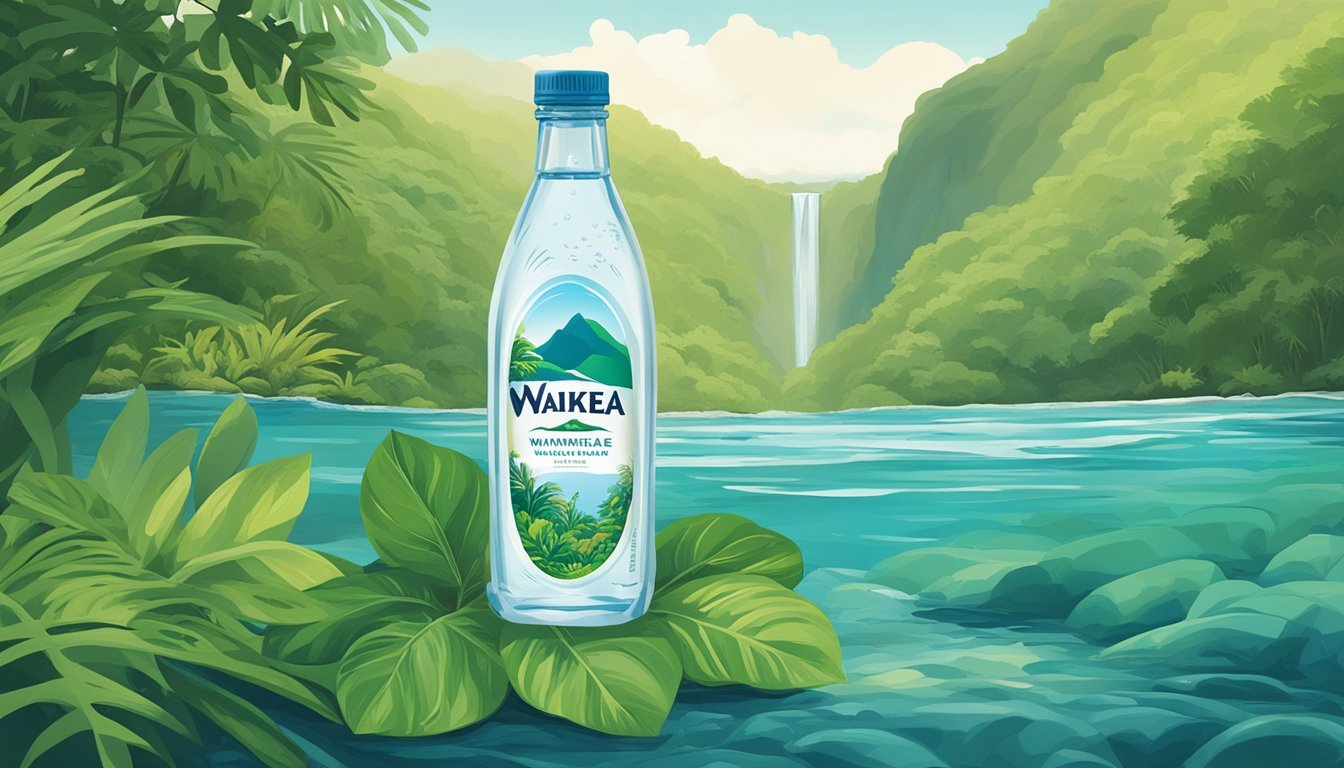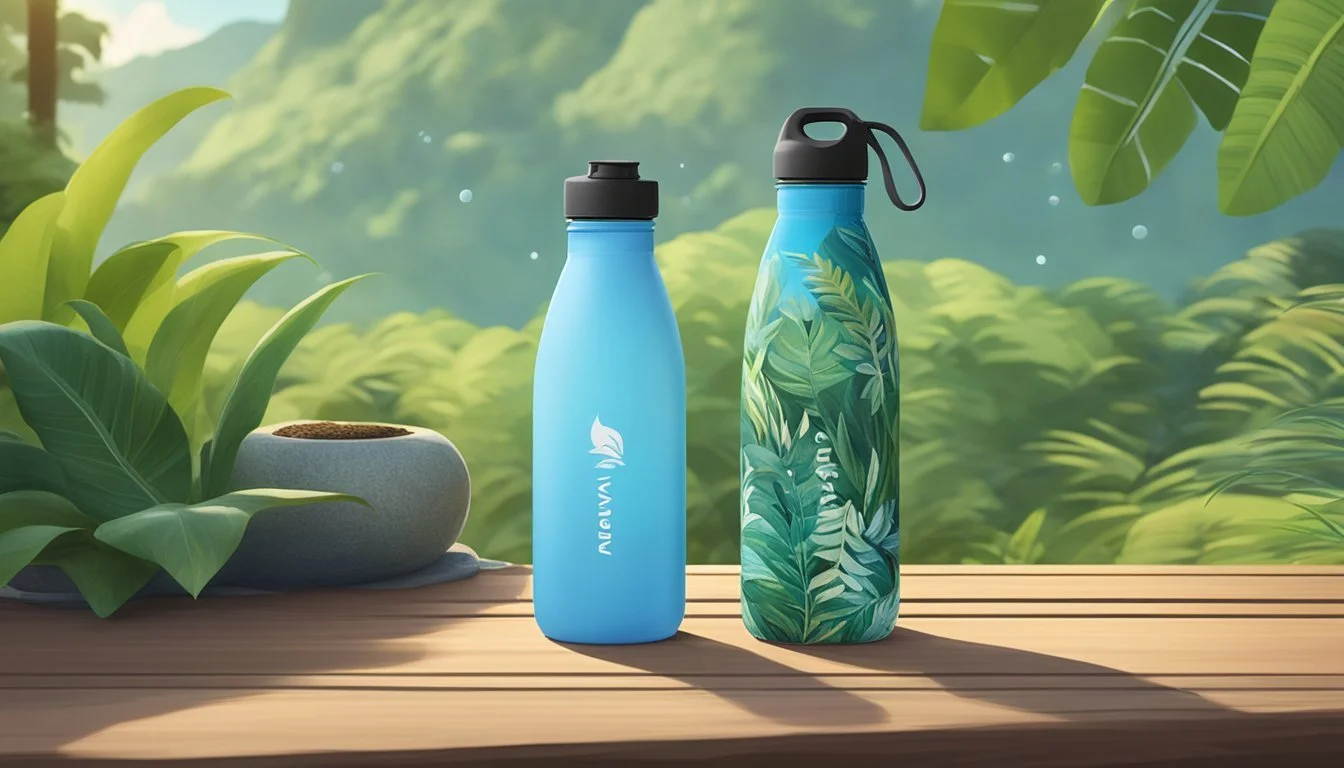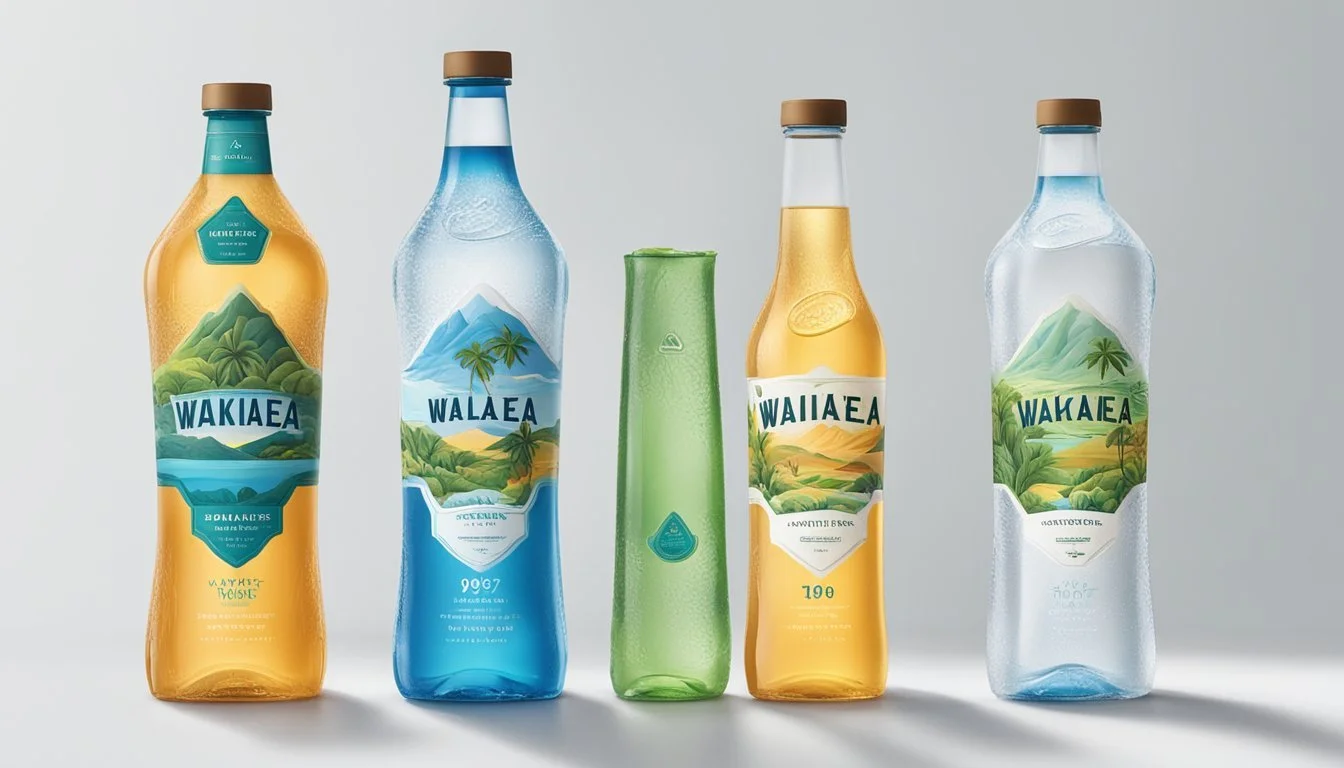Waiakea vs. 1907water
Comparing Premium Bottled Waters
When it comes to choosing the better bottled water between Waiakea and 1907water, there are a few key factors to consider. Waiakea water boasts a naturally alkaline pH of 8.8 and is sourced from a volcanic well in Hawaii, known for its purity and unique mineral composition. This high alkalinity helps neutralize acidity in the body and supports critical functions.
On the other hand, 1907water, hailing from New Zealand, is also naturally alkaline with a pH of around 8.0. Its mineral composition and pristine source contribute to its reputation for freshness and health benefits. Both brands prioritize sustainability and environmental responsibility, with Waiakea emphasizing its eco-friendly packaging and 1907water committing to ethical sourcing practices.
Ultimately, the choice between Waiakea and 1907water comes down to personal preference for taste, specific health benefits, and environmental considerations. By comparing these elements, you can make an informed decision about which bottled water fits better into your lifestyle.
Overview of Bottled Water Industry
The bottled water industry has seen significant growth over the past few decades. It includes a wide array of bottled water brands offering everything from basic purified water to premium, artisanal varieties. This industry caters to a booming market interested in both convenience and health benefits.
Sustainability and Environmental Impact
Many water brands emphasize sustainability and environmental considerations. Companies like Waiakea have pioneered efforts to reduce their carbon footprint, being certified Carbon Neutral. They focus on ethical practices that prioritize planet and people over mere profit.
Packaging
The type of packaging used in the bottled water industry is a critical aspect. Most bottled water comes in plastic bottles, leading to environmental concerns. Some brands are exploring alternatives, such as biodegradable packaging and efforts to reduce plastic usage. This is a necessity in an era increasingly conscious of environmental impacts.
Consumer Preferences
Consumers today are more informed and seek bottled water that aligns with their values. They consider factors like source quality, sustainability efforts, and ethical business practices when choosing their preferred water brands. This shift is prompting brands to innovate and adapt to meet new demands.
Economic Scale
The industry ranges from local artisanal brands to global giants. Companies prioritize various aspects, from premium sourcing to economical distribution. Brands like 1907water are known for their artisanal approach, while others focus on mass-market appeal.
The bottled water industry continues to evolve, driven by consumer preferences, sustainability, and ethical practices. The interplay between these factors shapes the market dynamics and the future of the industry.
Comparing the Contenders: Waiakea and 1907water
This section provides a detailed comparison between Waiakea and 1907water, focusing on their history, source, quality, health benefits, taste, and sustainability practices.
Brand History and Mission
Waiakea was founded in 2012 and originates from the Mauna Loa volcano in Hawaii. Its mission emphasizes sustainability and ethical practices. The brand is known for its efforts to provide clean water to underserved communities.
1907water is sourced from New Zealand and positions itself around its naturally alkaline properties. The brand focuses on purity and healthy living, aiming to offer high-quality water backed by natural minerals from its artesian source.
Source and Natural Composition
Waiakea is sourced from the Hawaiian volcanic slopes of Mauna Loa. This gives it natural filtration through volcanic rock, enriching the water with minerals and electrolytes.
1907water comes from an artesian source in New Zealand. It boasts natural alkaline properties with a pH ranging between 8.0 to 8.2. The water is rich in minerals due to its subterranean origin.
Water Quality and Purity
Waiakea undergoes a volcanic filtration process, resulting in water that's free from contaminants and possesses high levels of total dissolved solids (TDS).
1907water, sourced from a deep artesian aquifer, is naturally purified and doesn't require additional filtration. Its total dissolved solids (TDS) level is modest, reflecting its pure state.
Health Benefits and pH Levels
Waiakea has a naturally high pH level ranging from 7.6 to 8.2. The alkaline nature of the water may help neutralize acid in the body and is rumored to assist with acid reflux.
1907water's pH level is slightly higher at 8.0 to 8.2. It also offers potential health benefits such as improved hydration and better body alkalinity balance, due to its natural alkaline state.
Taste and Sensory Profile
Waiakea's volcanic filtration process gives it a crisp and clean taste with a hint of mineral richness, making it popular among consumers who appreciate its unique flavor profile.
1907water, with its natural artesian source, offers a smooth and refreshing taste. Its higher pH level contributes to a distinct mouthfeel, appreciated by those who prefer alkaline water.
Environmental Practices and Sustainability
Waiakea prides itself on its sustainable practices. The company uses RPET (recycled polyethylene terephthalate) for its bottles and maintains a carbon-neutral footprint. Additionally, they support reforestation and clean water initiatives for communities in need.
1907water also focuses on eco-friendly practices. Their packaging is recyclable, and they are committed to reducing their carbon footprint through the use of sustainable materials and practices.
Both Waiakea and 1907water offer unique benefits, each standing out either through their source, health benefits, or sustainability efforts.
Analyzing the Water: Composition and Benefits
Waiakea and 1907water are both known for their high-quality compositions and numerous health benefits. These waters differ in their mineral content, alkalinity, and their impact on hydration and electrolyte balance.
Mineral Content and Health Advantages
Waiakea water originates from the Mauna Loa volcano in Hawaii. It undergoes filtration through 14,000 feet of porous volcanic rock, resulting in a unique mineral composition. Waiakea water contains calcium, magnesium, potassium, and silica, which contribute to overall health.
1907water is sourced from New Zealand, filtered through volcanic rock, and contains essential minerals like calcium and magnesium. These minerals support bone health, muscle function, and cardiovascular well-being. Both waters are rich in minerals, but Waiakea's silica content provides an added benefit for skin and hair.
Alkalinity and pH Balance
Waiakea water has a naturally high alkaline pH of 8.8, which helps to neutralize body acidity and support critical body functions. This high pH level is beneficial for those looking to maintain a balanced diet and reduce acid intake. The alkalinity of Waiakea water is one of its major selling points.
1907water, meanwhile, boasts an alkaline pH of approximately 8.0. This also helps in balancing body pH levels, although slightly less alkaline than Waiakea. Both waters are marketed as alkaline water and share the benefit of aiding in the reduction of acid in the body.
Hydration and Electrolyte Levels
Both Waiakea and 1907water offer excellent hydration properties. Waiakea’s naturally occurring electrolytes, including sodium, potassium, and magnesium, make it an effective hydration choice for active individuals and those needing to replenish lost electrolytes.
1907water contains similar electrolytes but can vary in concentration. It is a strong choice for maintaining proper hydration, especially after physical exertion. The naturally occurring minerals and electrolytes in both waters contribute to efficient hydration and overall well-being.
By focusing on these aspects, consumers can make informed choices about which bottled water best fits their health and hydration needs.
Packaging and Environmental Responsibility
Bottled water brands prioritize eco-friendly practices and sustainable packaging to mitigate their environmental impact. Key areas of focus include the types of materials used and the carbon footprint associated with production and distribution.
Materials and Recycling
Waiakea utilizes 100% recycled polyethylene terephthalate (RPET) bottles, making them highly committed to reducing plastic waste. RPET is more eco-friendly than traditional plastic as it decreases the need for new plastic production and promotes recycling.
1907water also emphasizes sustainability, using BPA-free bottles to ensure consumer safety. BPA-free bottles avoid harmful chemicals, ensuring both environmental and personal health. They are exploring the use of RPET as well, though their current packaging utilizes less recycled content compared to Waiakea.
Both brands' dedication to using recycled materials helps decrease the environmental impact of bottled water packaging.
Carbon Footprint and Sustainability Efforts
Waiakea sets a high standard for sustainability; it is the first U.S. bottled water brand certified CarbonNeutral. This involves offsetting its carbon emissions through various initiatives and using a facility powered by 33% renewable energy.
Additionally, Waiakea supports reforestation projects and other environmental initiatives. Their water source, an aquifer with a 1.4 billion gallon recharge rate, ensures a sustainable supply.
1907water also works to minimize its carbon footprint by optimizing distribution methods and prioritizing local sourcing whenever possible. They are actively engaged in sustainability practices, although details on specific carbon-neutral initiatives are less prominent.
Both brands are striving to decrease their environmental impact through measurable sustainability efforts and commitment to reducing their carbon footprint.
Consumer Considerations
When comparing Waiakea and 1907water, consumers often evaluate factors such as cost, accessibility, taste, and brand reputation. Each of these elements plays a significant role in the purchasing decision.
Cost and Accessibility
Price and availability are crucial aspects for most consumers. Waiakea generally falls into the premium category, often priced higher due to its unique source and mineral content. 1907water, sourced from New Zealand, also tends to be on the higher end of the price spectrum but may vary slightly depending on the region and retailer.
Both brands are available at major retailers and online platforms, though Waiakea's distribution network might be more extensive in certain markets due to its established brand presence. Consumers might find it beneficial to compare prices across different platforms and consider subscription models which can sometimes offer discounts.
Taste Preferences and Reviews
Taste is a highly subjective factor, but it remains significant in the decision-making process. Waiakea is known for its smooth, slightly alkaline taste, attributed to its mineral composition and filtration through volcanic rock. Many consumers appreciate this unique taste profile, rating it highly in taste tests.
1907water, on the other hand, prides itself on a clean, neutral taste, also thanks to its natural filtration process. Taste reviews for 1907water often highlight its refreshing quality without any lingering aftertaste. Those with specific taste preferences may find themselves leaning towards one brand over the other based on these subtle differences.
Brand Presence and Reputation
The reputation and market presence of a brand can greatly influence consumer trust. Waiakea has built a strong reputation not only for its product quality but also for its environmental practices and community involvement. Their commitment to sustainability, including their use of recycled materials and carbon-neutral shipping, resonates with eco-conscious consumers.
1907water also emphasizes sustainability, with a focus on using renewable resources and practices to minimize environmental impact. While perhaps less well-known than Waiakea in some regions, it has garnered a loyal customer base due to its quality and ethical practices. Comparing these reputations can assist consumers in aligning their purchase with their values.
By evaluating these factors, consumers can make a more informed decision that aligns with their preferences and values.
More Aboout Waiakea
Icelandic Glacial vs Waiakea: Which Bottled Water is Better?
Mountain Valley Spring Water vs Waiakea: Which Bottled Water is Better?
Waiakea vs Kirkland Signature: Which Bottled Water is Better?
Waiakea vs Richard's Rainwater: Which Bottled Water is Better?
Waiakea vs Whole Foods Italian Still Mineral water: Which Bottled Water is Better?
More About 1907water
1907water vs Kirkland Signature: Which Bottled Water is Better?
Cascade Mountain vs 1907water: Which Bottled Water is Better?
Hawaii Volcanic vs 1907water: Which Bottled Water is Better?
Hawaiian Springs vs 1907water: Which Bottled Water is Better?
Icelandic Glacial vs 1907water: Which Bottled Water is Better?
Mountain Valley Spring Water vs 1907water: Which Bottled Water is Better?
Nestle Pure Life vs 1907water: Which Bottled Water is Better?
Richard's Rainwater vs 1907water: Which Bottled Water is Better?
Solan de Cabras vs 1907water: Which Bottled Water is Better?
Talking Rain AQA vs 1907water: Which Bottled Water is Better?
Whole Foods 365 vs 1907water: Which Bottled Water is Better?
Whole Foods Italian Still Mineral water vs 1907water: Which Bottled Water is Better?






